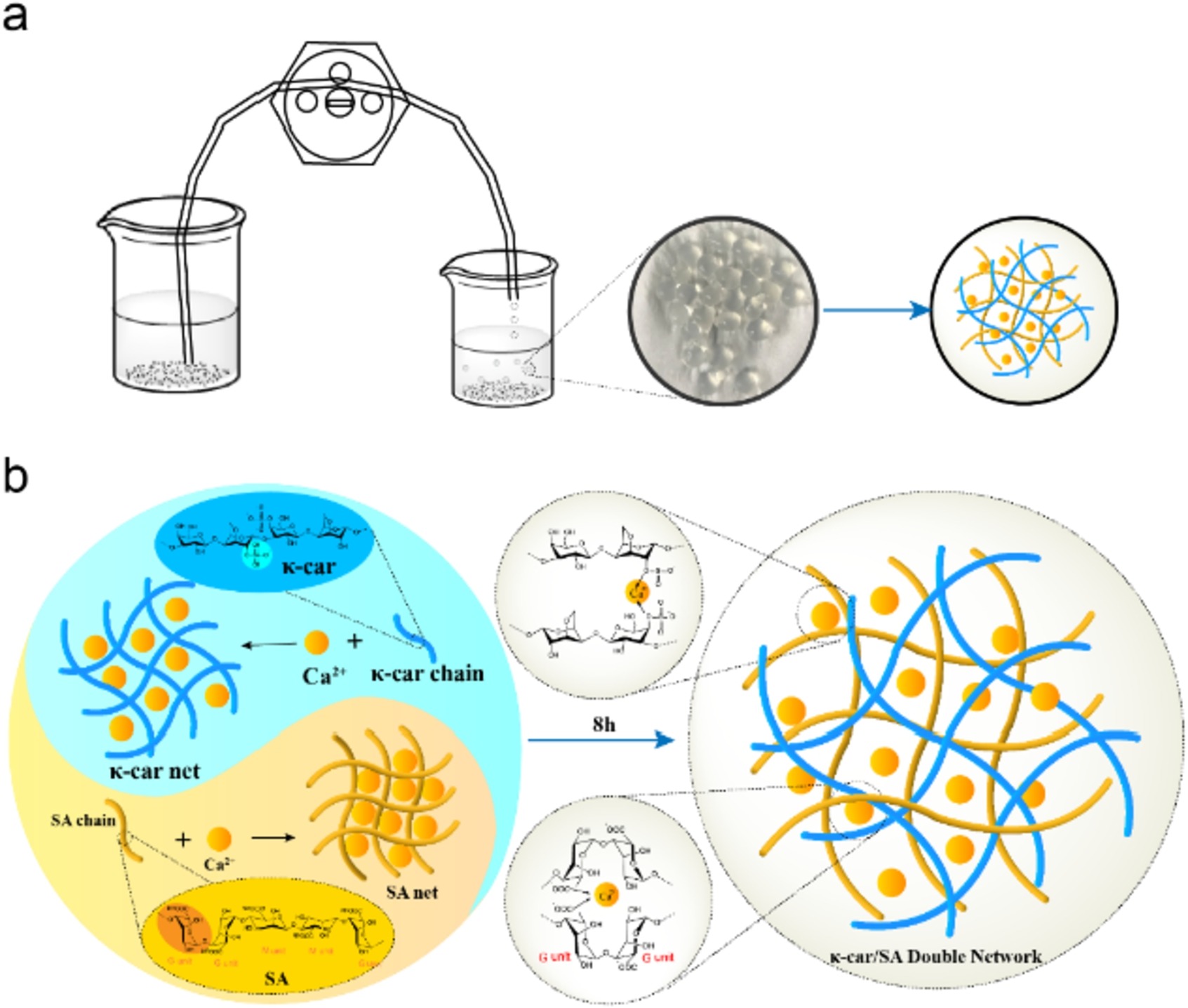Abstract
The abuse of antibiotics is becoming increasingly serious, particularly in offshore aquaculture areas. Double-network polymer gel has good prospects for environmental application for the removal of antibiotics. In this work, κ-Carrageenan/Sodium Alginate (κ-car/SA) double-network hydrogels were designed and synthesized with enhanced mechanical properties, anti-swelling, and adsorption capacity. It was found that the intermolecular interaction and viscosity tend to increase with the increasing concentration of κ-carrageenan. The swelling degree of the composite hydrogel in NaCl solution presented a decreasing trend with the increase of carrageenan. SA can effectively improve the mechanical properties of κ-carrageenan composite gel and enhance its compressive resistance and elasticity. Ciprofloxacin (CIP) was used as the model pollutant for testing the adsorption performance. The results show that the Langmuir-Freundlich isotherm model is more suitable for fitting the adsorption isotherm data of CIP on gel beads, which indicates that κ-car/SA hydrogels have heterogeneous surface and different binding sites. κ-car/SA composite double-network hydrogels exhibit excellent adsorption properties for CIP (229 mg/g). The optimal adsorption capacity of κ-car/SA composite hydrogels was obtained at pH 4, and the adsorption capacity of the hydrogels increased with increasing ion concentration. FTIR spectroscopy and the Zeta potential test analyses showed that the adsorption mechanism may be explained by hydrogen bonding and the electrostatic interactions between κ-car/SA composite hydrogels and CIP. The formation of the new double-network hydrogel provided good properties and development potential for the adsorption of antibiotic in water.
